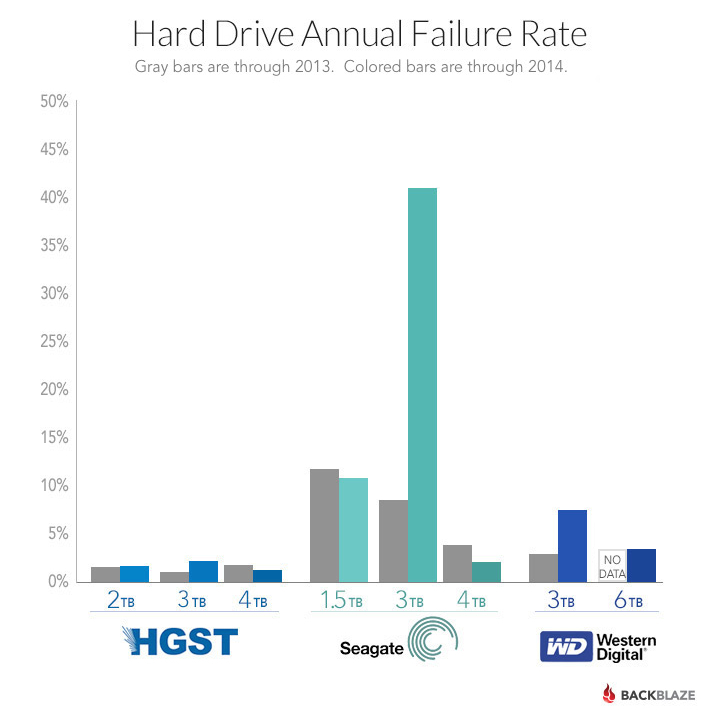JHZR2
Staff member
Could be laptop size or 3.5" type.
Interface: USB 3.0 via a USB-sata converter.
Use: once every few months otherwise stored in a safe deposit box.
Size: 2-4TB or larger if there's a compelling reason.
Transfer: expect 5-20 GB per transfer in one event. Files 20-200MBeach.
It seems from a cursory search on Amazon, that 5400 rpm drives are more and more prevalent... And there aren't as many 7200+ options. I'd guess it's because SSDs are used anywhere that performance is necessary.
Recommendations on brand model?
Interface: USB 3.0 via a USB-sata converter.
Use: once every few months otherwise stored in a safe deposit box.
Size: 2-4TB or larger if there's a compelling reason.
Transfer: expect 5-20 GB per transfer in one event. Files 20-200MBeach.
It seems from a cursory search on Amazon, that 5400 rpm drives are more and more prevalent... And there aren't as many 7200+ options. I'd guess it's because SSDs are used anywhere that performance is necessary.
Recommendations on brand model?




